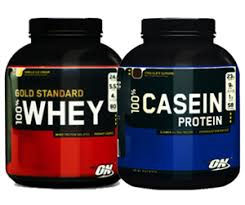Is the Keto Diet Beneficial for Performance?
- schmidttm6
- Dec 13, 2020
- 2 min read

The keto diet is a low carb, high fat diet. In my Carbohydrates - The Body's Main Fuel Source blog, I talk about the importance of carbohydrates for not only fueling the body for exercise and competition, but also the recovery process afterwards. So why am I bringing up a diet that restricts carbs? The keto diet was initially created to help individuals with epilepsy, but it was picked up by a large population as a guide to weight loss. I'm not suggesting whether you should or shouldn't follow this diet. I'm simply providing information that I've found in order to give you a better understanding on its effects on training individuals.
For every gram of carbohydrate you consume, you're also consuming 3 grams of water (1). Individuals that are looking to lose weight may see results on the scale because they are cutting out a majority of the carbs in their diet. This means the are also cutting out water intake. A study performed by Vargas-Molina et al. tested the body composition and strength of training women. They put them through an 8-week diet and training plan. Both groups performed a 1-RM in bench press and squat as well as a countermovement jump test, and a DEXA scan was performed to find the body composition (fat mass and fat-free mass) of each individual. One group was randomly assign to the keto diet, while the other group was assigned to the non-keto diet. At the end of the 8-week resistance program, these tests were performed again. They found that there was a significant decrease in fat mass among the keto diet group; however, there was also an absolute decrease in muscle mass (1.5 lb). The keto diet also showed no significant difference in changes from the baseline for bench, but did for squat and the countermovement jump. The non-keto diet showed a significant increase in bench, squat and the countermovement jump (2).
Another research article studied the impact of the keto diet on endurance performance, strength performance, short duration performance and body composition. From the baseline for endurance or strength performance, there was no advantages of being on the keto diet. Short duration activities lasting ≤30 seconds and body composition did show an advantage. However, the change in body composition (decrease in fat mass) could have impacted the short duration activities (3).
Again, I am not encouraging or persuading whether or not you should use the keto diet. Personally, when I don't eat enough carbohydrates I can tell my energy level is low and my performance is negatively impacted. With this information provided from the research articles, use your best judgment.
Resource
Heelan, C., Dr. (2020). Designing Weight Management and Body Composition Programs. Lecture presented at PE 467 Fitness Testing in CUSH 121, Kearney.
Vargas-Molina, S., Petro, J. L., Romance, R., Kreider, R. B., Schoenfeld, B. J., Bonilla, D. A., & Benítez-Porres, J. (2020). Effects of a ketogenic diet on body composition and strength in trained women. Journal of the International Society of Sports Nutrition, 17(1). doi:10.1186/s12970-020-00348-7
Mcswiney, F. T., Doyle, L., Plews, D. J., & Zinn, C. (2019). Impact Of Ketogenic Diet On Athletes: Current Insights. Open Access Journal of Sports Medicine, Volume 10, 171-183. doi:10.2147/oajsm.s180409
.png)



コメント